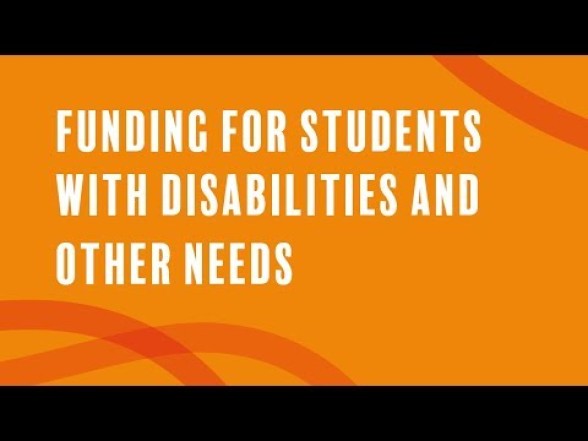Higher Education Funding
Email this pageThe move to university is daunting for anyone, but it is especially so for many students with special educational needs. Knowing what support is available and getting it set up before starting university is a key part of making the transition to higher education go as smoothly as possible.
Disabled Students’ Allowance
The Disabled Students’ Allowance (DSA) provides funding for students with disabilities. It can fund non-medical helper support, such as study skills tutors for students with specific learning difficulties and mentors for students with mental health conditions or on the autistic spectrum.
It can also help fund equipment, such as computers and assistive technology, with the student paying the first £200 towards the cost of a computer.
All students who apply for DSA have a study needs assessment to determine what support is best for them. There are assessment centres based at universities across the country. After the assessment, the assessor writes up a report detailing what support the student needs.
DSA can be applied for before starting university, which is the best option in terms of getting support in place before starting a course. DSA only covers costs related to studying. Students can also apply for Personal Independence Payments (PIP) through the Department for Work and Pensions (DWP) to help cover the additional costs of living with a disability.
Also in this section:
SEN Funding in Mainstream Schools
This information is about funding for special educational needs (SEN) in mainstream schools. This includes academies and free schools.
SEN Funding in Further Education Settings
Information on how further education settings are funded and how to ask for help
SEN Funding in Early Years
Information on Free Early Years Entitlement, SEND Premium and inclusion funding and Early Years Pupil Premium.

